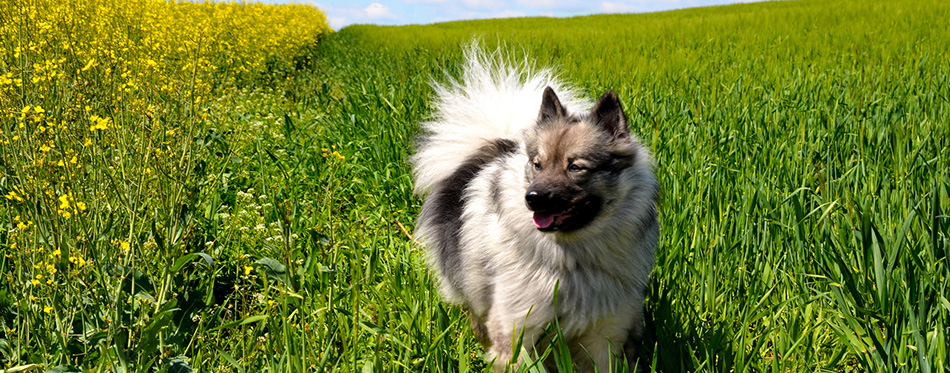Some pet parents find dog sneezing cute. It strengthens the belief that we have a lot of things in common with our favorite pets. While a simple sneeze can be nothing more than a tickle in the dog’s nose, it can also be a sign of a more serious problem. That is why if your dogs keep sneezing, it may be wise to get your veterinarian’s opinion.

Reasons Why Dogs Sneeze
Sneezing is not a disease or a health condition. It is the body’s natural reaction to something that is irritating the nasal passages. It is almost similar to coughing. When something irritates the airway passages, the smooth muscles contract in an effort to expel the irritant. The same is true with sneezing. When something irritates the nasal canal, it triggers a defense mechanism meant to dislodge the irritant. The question now is what could be this irritant? This leads us to the possible explanations as to why do dog sneeze.
- Foreign Objects
The presence of foreign objects in the dog’s nasal passages is the most common reason why dogs sneeze. As already explained, sneezing is the dog’s way of getting rid of anything that is irritating the inside surface of its nose. It can be dirt, dust, or pollen. This is common among dogs that spend most of the day outdoors sniffing their surroundings. Particles and debris can get in their nose during their sniffing adventures.
If you happen to live in any state west of the Mississippi River, there is a good chance the sneezing episode in your dog is due to foxtails. This is especially true during the early parts of summer or the last few weeks of spring.
- Infections
Sneezing can be a manifestation of an infection. If cough accompanies the sneezing, it is possible that your dog has either bacterial or viral infection. One of the most common canine infections of the upper respiratory tract is kennel cough. Bordetella bronchiseptica is the most common culprit of kennel cough. Among viruses, it is the canine distemper virus, canine adenovirus, parainfluenza virus, canine reovirus, and the canine herpes virus that are often implicated.
If the dog doesn’t have cough, it is possible that its sneezing is due to an Aspergillus fungal infection. These fungi are present in grass clippings, hay, and outdoor dust. You will also notice nosebleed and swelling in the dog’s nose. Other fungal species can also make dogs keep sneezing. These include Blastomycoses and Cryptococcus species.
An infection of the third upper premolars can also cause the dog to sneeze. This is because the teeth lie close to the dog’s nasal passages.
The presence of nasal mites can also cause dog sneezing. These parasites can also produce intense itching of the dog’s nose. You will notice your pet scratch or paw its nose. The most common culprit is the Pneumonyssoides caninum mite.
- Allergies
Why do dogs sneeze? It could be because they have environmental allergies. When susceptible dogs inhale air that has allergens like pollen and dust, these allergens can trigger an inflammatory response. The inflammation leads to the release of certain substances that can make the nasal passages itchy. This triggers the sneezing episode.
Any form of allergy has the potential to cause sneezing in dogs. Both food allergies and flea bite allergies can trigger an immunologic reaction. It can cause intense itching, leading to sneezing.
- Emotions
You may have seen dogs sneezing while playing. This is a harmless and normal reaction. Canine behaviorists say that the sneezing is the dog’s way of telling its playmate to lower its excitement. It is an interrupter.
There are also dogs that will sneeze when they roll on their backs, while enjoying a good scratch or belly rub from their owners. There is no way to explain such a behavior except that it can be a sign of canine happiness.
- Other Causes
Household chemicals can also cause sneezing in dogs. These can include cologne, household cleaners, aerosol deodorants, fiberglass, and cigarette smoke. Pesticides can also trigger sneezing.
Related Post: Air Purifier for Pets
Nasal tumors can also cause sneezing. The growing mass of tumor cells can trigger the sneeze reflex in dogs in an attempt to dislodge the tumor.
Managing Canine Sneezing
Sneezing can be a very normal phenomenon or it can be a sign of something else. One has to analyze the dog sneezing episode in light of other symptoms or the circumstance. If the behavior occurs only during playtime, you can think of it as a normal reaction. However, if there are other manifestations that accompany the sneezing, then you should start performing the following measures.

Inspect Your Dog’s Nasal Passages
The first thing you should do if you notice persistent sneezing in your dog is to check its nasal passages. This will help rule out the possibility of foreign objects that may be lodged inside its nose. Use a penlight or a torch to illuminate the inside of the nose. Check for any sign of swelling or discharge.
Check for Other Manifestations
If the sneezing is a manifestation of a disease, then there should be other symptoms and signs that you should see. Check if your dog is also coughing. Does it have a fever? How about runny nose or discharge from its nose? You should also evaluate its activities of daily living. If the dog is sick, it may not be able to feed very well. Its activity levels can also take a downturn.
Bring Your Dog to the Clinic
Some pet parents apply saline drops in the nasal passages of their dogs. Others will administer over-the-counter antihistamines. While these treatments can help address sneezing in dogs, it is best to defer giving such treatments until a veterinarian has examined your dog.
Veterinarians perform a comprehensive examination of the dog’s health condition. They may call for tests, such as radiographs, rhinoscopy, and blood tests. These will help determine the real cause of the sneezing and to check for other manifestations.
Only after a thorough assessment of the pet will a veterinarian commence with the treatment. Everything depends on what is causing the sneezing.
Dog sneezing is a normal phenomenon in most cases. However, it can also be a sign of an underlying medical condition.

